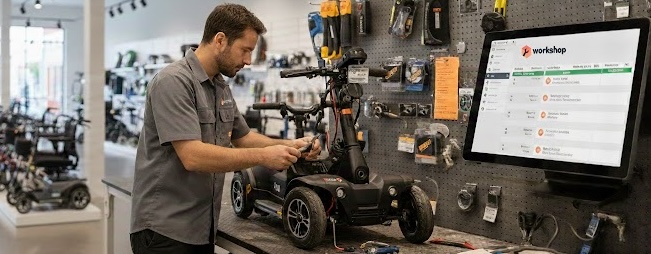February 19, 2026
•
4 minute read
How Performing Regular Bicycle Maintenance Can Keep You Safe On The Road
Cycling is an increasingly popular way of getting around in the UK that brings many health benefits, from physical strength to a more positive outlook.
Heather Murphy
Advisor
Cycling is an increasingly popular way of getting around in the UK that brings many health benefits, from physical strength to a more positive outlook. But unfortunately, there were over 140 cyclist fatalities on British roads in 2020, and many thousand serious injuries, so safety on the roads is a real concern.
As such, it's vital that cyclists do everything they can to keep themselves safe when they head out for a ride, and that includes maintaining their bike. After all, ensuring your bicycle is safe to ride is the first step to protecting yourself on the road.
In this post, we take a look at five key reasons why regular bicycle maintenance is vital for staying safe on the roads.
Brake maintenance means you'll stop in time
Loose or broken bike brakes are incredibly dangerous, particularly when riding at high speeds or across hilly terrain. Brake pads should be checked for signs of wear regularly, and they usually need to be replaced once or twice each year depending on how often you use your bike. If your brakes feel like they're not responding well but the pads aren't worn down, you may need to tighten the brake cable instead.
Chain lubrication prevents breakage
The chain of your bike needs to be well lubricated to avoid unnecessary wear on the gears, which can in turn lead to a broken chain. If your chain breaks mid-ride, you’ll have no choice but to push your bike home or arrange for someone to pick you up. This could be incredibly dangerous if it happens on a busy road without a footpath. To protect yourself, oil your bike chain every 100 to 150 miles, or more often if you regularly cycle in wet or dirty conditions.
Maintaining good tyres pressure gives you more control
Bikes are more difficult to steer when their tyres aren't properly inflated. It's vital that you have full control of the bike should you need to make a sudden manoeuvre around a hazard. Check your tyre pressure regularly to make sure it matches the recommended pressure printed on the tyre rim. While you're checking your tyres, look out for cracks and signs of rot.
Tightening bolts prevents serious malfunctions
Every time you ride your bike its screws and bolts are jarred and slightly loosened. It's important to tighten bolts and screws periodically to prevent them falling out while you're riding. Losing a bolt or screw on the road might have serious consequences depending on which part of the bike is affected. If your handlebars come loose mid-ride, you could have a life-threatening accident. Even if the bike appears to perform okay with a lost screw or bolt, simply riding over a pothole could be enough to jolt a crucial part loose.
Routine inspections help to identify dangerous wear and tear
Cracks in the frame of a bike can often go unseen unless you carefully inspect the frame in good light. If your bike regularly gets muddy or dusty, it can be even harder to spot cracks, patches of rust, and other signs of wear and tear. Cracks and significant rust can affect the integrity of the bike, leading to immediate failure of the frame should the bike take any impact. Inspect the frame regularly and keep your bike clean to ensure you notice any issues before they become dangerous.
Protect yourself by servicing your bike
Bicycle maintenance goes a long way in helping you stay safe on the roads, so don't hesitate to check out bikebook to find a local, friendly bicycle mechanic who will be able to check that it's in great condition.



